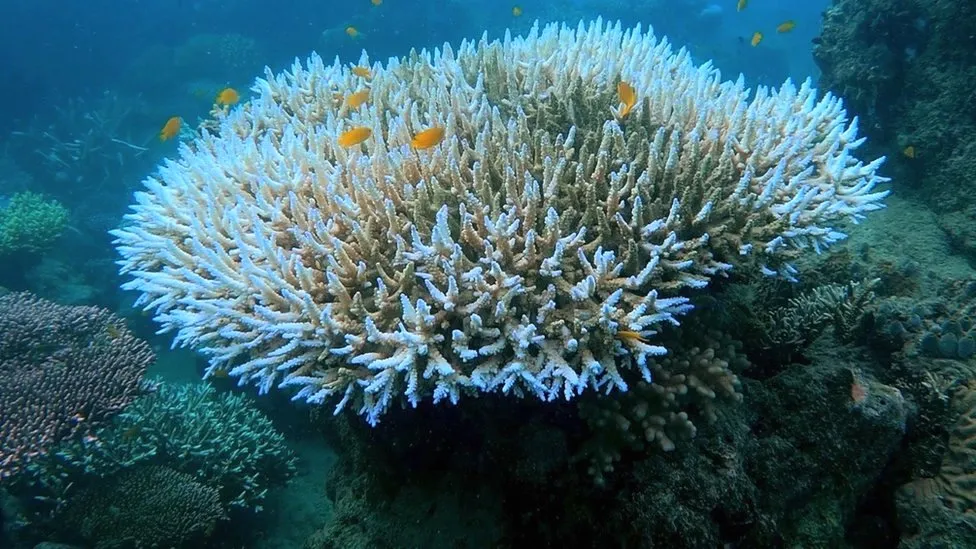Whitewashing the World’s Coral
1 min readWorld's Coral Turns White from Deadly Ocean Heat
Recent reports from marine biologists around the world have shown a disturbing trend: coral...

World’s Coral Turns White from Deadly Ocean Heat
Recent reports from marine biologists around the world have shown a disturbing trend: coral reefs are dying at an alarming rate due to rising ocean temperatures. The phenomenon known as coral bleaching occurs when corals are under stress from high temperatures, causing them to expel the algae that live within their tissues and provide them with essential nutrients. Without these algae, the coral turns white and is left vulnerable to disease and eventually death.
The Great Barrier Reef, located off the coast of Australia, has seen significant bleaching events in recent years, with large swathes of coral turning white and dying off. Scientists warn that if current trends continue, we could see the world’s largest coral reef system collapse within our lifetime.
This alarming trend is not limited to just the Great Barrier Reef. Coral reefs around the world are facing similar threats from ocean heatwaves, with some regions experiencing bleaching events on an unprecedented scale. The loss of coral reefs is not only devastating for marine biodiversity, but also has far-reaching consequences for coastal communities that rely on reefs for food, tourism, and protection from storms.
It is clear that urgent action is needed to address the root causes of coral bleaching, including reducing greenhouse gas emissions and improving marine conservation efforts. Without swift and decisive action, we risk losing one of the most diverse and important ecosystems on our planet.






